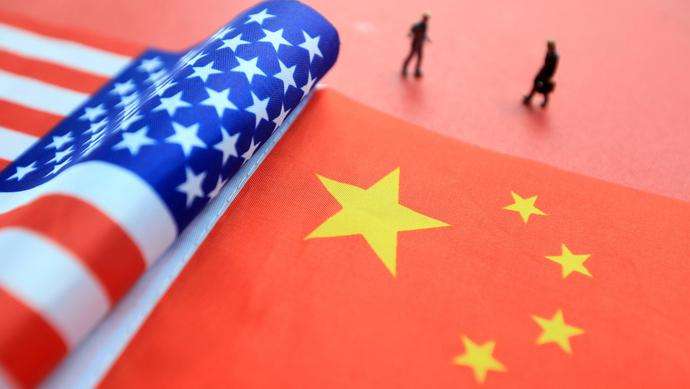16
NovemberOn November 5, the “China-US Relation Under New Situation: Challenges and Responses” Seminar, organized by Center for Research on International Strategy of NADS has been held in 123 meeting room in Guoxue Hall, Renmin University of China. Many experts and scholars from Renmin University of China, Peking University, Chinese Academy of Social Sciences, China Institutes of Contemporary International Relations, and University of International Relations attended this meeting. Li Chen, Research Fellow of Center for Research on International Strategy of NADS and Lecturer of the School of International Relations, pointed out that it is not proper to describe current status of China-US relation with the origin and escalating process of cold war. He analyzed the transformation of the relation from the perspective of situation security. In the strategic level, the competition between china and US is the long term game without breaking out all-around confrontation. In the tactical level, deliberately provocative “navigation freedom” in the past had been escalated into showing muscle action in the important field in a more intensive and larger-scale way.

He believed that the discussion on the “new cold war” itself is good and positive, which reflects the anxiety and willing to avoid confrontation. Besides, it is necessary to learn from the lessons in the cold war. However, it is likely to make misunderstanding to pay excessive attention to the cold war. For example, it is not right to evaluate the status of current China-US relation with the origin and escalation of cold war.
He said that the current strategic background, challenges and opportunities are all different from those of 70 years ago. Pence’s speech can’t be compared with the speech delivered in the early time of cold war. So we can’t judge the current status of China-US relation from the Pence’s speech or “Iron Curtain” speech. At that time, speech is the first step, motivation and action is the second step. Military alliance, front-line deployment, national security mechanism and other cold-war structure and tools formed later. At present, these tools have already existed. US can take actions in many fields, or motivate and act synchronously.
He also pointed out that at the strategic level, US prioritizes competition over mutual trust. The action they have taken recently, such as not invites Chinese army to take part in Pacific Rim military exercise, takes sanctions on relevant sections of chinses army in the name of purchasing Russian weapons, and enhances the military interaction with Taipei, which will affect the mutual trust between China and US and take the initiative in the competition.
However, he said that China and the United States are also maintaining high-level communication to prevent the situation from seriously deteriorating. In October, the defense ministers of the two countries held talks in Singapore, and in November the Chinese defense minister visited the United States. This also reminds us that the need to accurately grasp the strategic competition between the two sides is a long-term game that attempts to not break the bottom line of comprehensive confrontation. Of course, the personnel changes of the US Department of Defense leaders will affect their strategic concepts and behaviors. This also means that in the competition, on the basis of maintaining the bottom line, at different stages, facing different problems, both sides need to continue to work together.
Li Chen also said that at the operational level, the US maritime military competition against China has intensified, from the “freedom of navigation” action which is deliberately, to show power and military advantages through more intensive and large-scale operations.
In addition, he also pointed out that the arms race motivated by the new technological revolution has continued to go further. By withdrawing the Middle-range Guided Missile Treaty, US took mixed measures on arm control and competition. Into the attack, increase the option of land-based guidance deployment; retreat to defend, through a new round of arms control negotiations to limit the development of competitors' medium- and long-range strike forces.
Finally, Li Chen believed that the above changes require us to be more fully prepared based on more precise judgments. We need manage and control competition in the Asia-Pacific security environment; while grasping and coping with China-US relations, we need to strengthen the construction of regional security architecture and continuously improve our relations with surrounding countries. As long as the security dilemma in the region is reduced, the efficiency of the US competitive strategy will decline. In the face of competition and arms control, we should also prepare ourselves for both eventualitiesboth and use them as tools to achieve our goals.